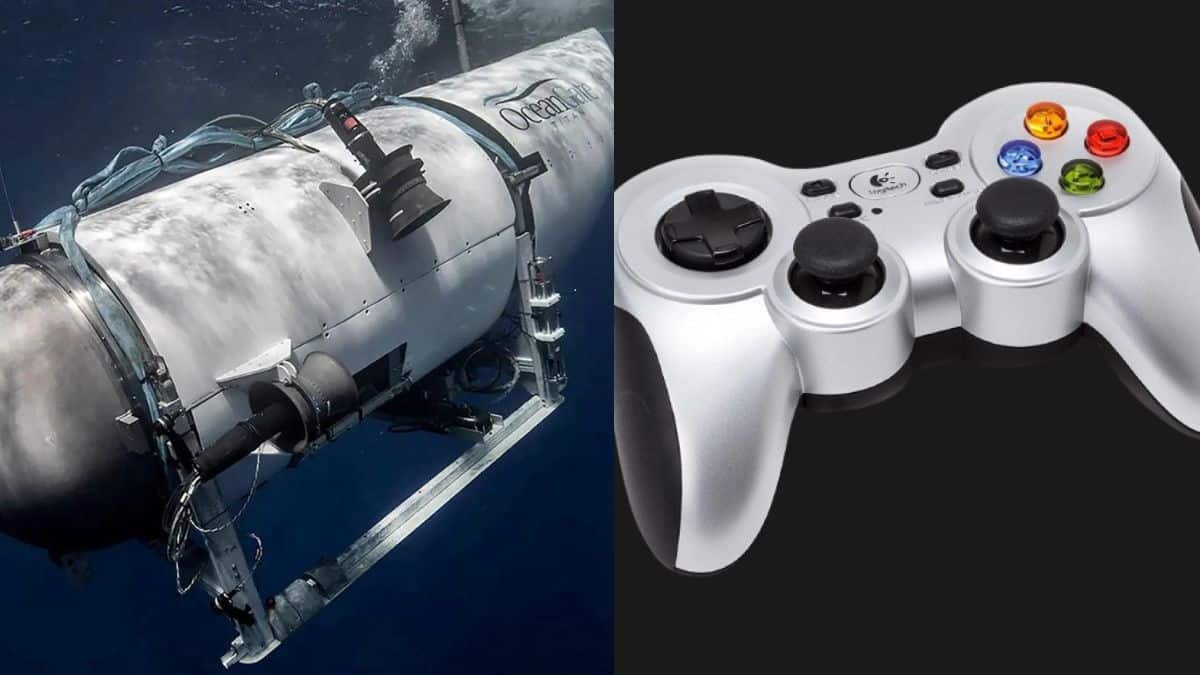The recent unfortunate incident involving the Titan submersible has sparked discussions not only about the quality and certification of the craft but also about its control mechanism. It was revealed that the submersible was operated using a repurposed Logitech G F710 Wireless Gamepad, leading to speculation about its role in the tragic outcome. While the news triggered a flurry of troll reviews on the controller’s Amazon page, the truth is that gaming controllers are finding practical applications beyond the gaming realm. They are being utilized in diverse fields such as bomb disposal, military training, medtech, and even space exploration. In this article, we delve into the innovative ways gaming controllers are being employed.
Bomb Disposal:
Bomb disposal teams face significant risks when dealing with improvised explosive devices (IEDs). To mitigate these risks, robots are often employed to inspect and defuse the devices. These robots are operated using gaming controllers due to their intelligent and ergonomic designs, which have become commonplace in video games. In a military partnership with Roomba-maker iRobot, bomb disposal robots controlled by an Xbox controller were introduced in 2013. The familiarity and intuitive nature of the Xbox controller proved beneficial, particularly for younger soldiers. Similarly, a US Army explosive ordnance disposal (EOD) technician used an Xbox 360 controller to operate a Pacbot 310 robot in Afghanistan in 2011, allowing safe disposal of bombs through the robot’s wireless camera feed.
Military Training and Vehicles:
Gaming controllers offer cost-effective solutions for military applications, replacing clunky and specialized hardware. The US Air Force utilizes video game controllers in virtual simulators, while the US Army employs them in the Stryker Virtual Collective Trainer, a simulator for training Stryker armored vehicle crews. Even submarines have embraced gaming controllers in certain cases. Virginia-class nuclear-powered attack submarines utilize Xbox controllers to operate their photonic mast, which replaces traditional periscopes with digital devices equipped with day/night cameras and video recorders. In 2017, the British Army experimented with remote-controlled all-terrain vehicles (ATVs) controlled by Xbox controllers.
Medtech:
Several controllers used in the field of medtech bear a striking resemblance to gaming equipment, despite not being manufactured by gaming companies. An exemplary case is the Monarch Platform, a flexible endoscopy robot designed to access hard-to-reach areas within the body. Doctors control this robot using video game-style controllers, allowing them to record images and potentially perform physical interventions. Another application involves the use of Xbox controllers to train medical students through virtual surgery. For instance, BodyViz, a 3D MRI and CAT scan visualization software, employs Xbox controllers to manipulate the display view, replacing the previously cumbersome mouse-and-keyboard method.
Space:
NASA has shown interest in utilizing game controllers to operate robots and spacecraft. The agency has already used modified game controllers to test robots on Earth and has considered repurposing them for operating machines throughout the solar system. Although real-world applications in space exploration are yet to materialize, the potential for game controllers to play a role in future space missions, including those to Mars, is not far-fetched.
The recent tragedy involving the Titan submersible highlights the misconceptions surrounding gaming controllers and their diverse applications. From bomb disposal to military training, medtech, and even space exploration, gaming controllers have proven their worth beyond the realm of entertainment. With their intuitive designs, cost-effectiveness, and ease of use, gaming controllers are revolutionizing various industries and paving the way for exciting advancements in technology.


